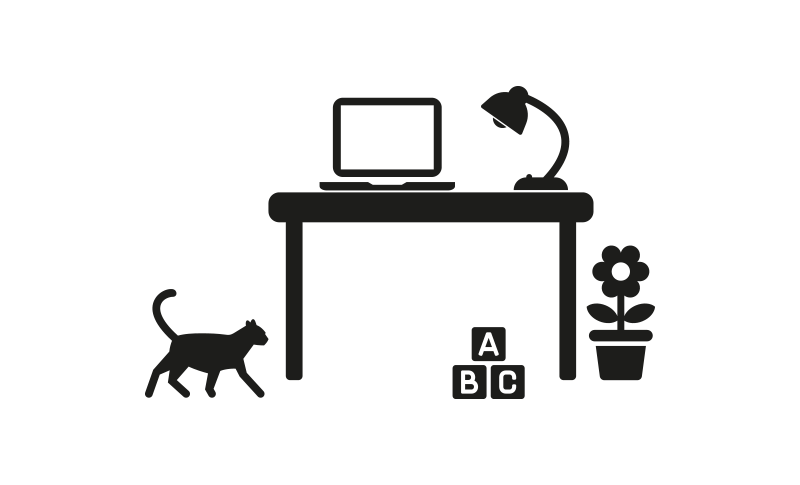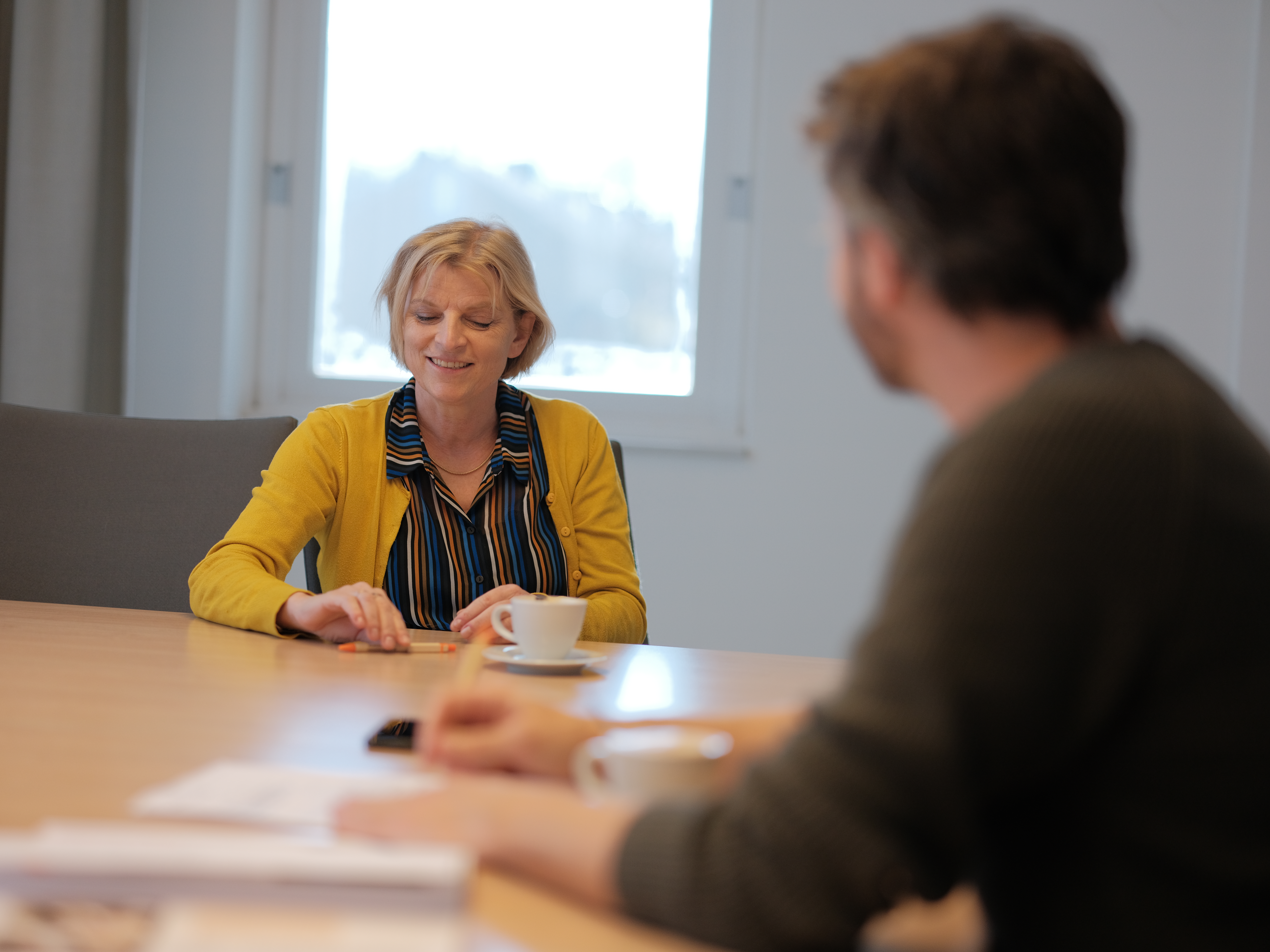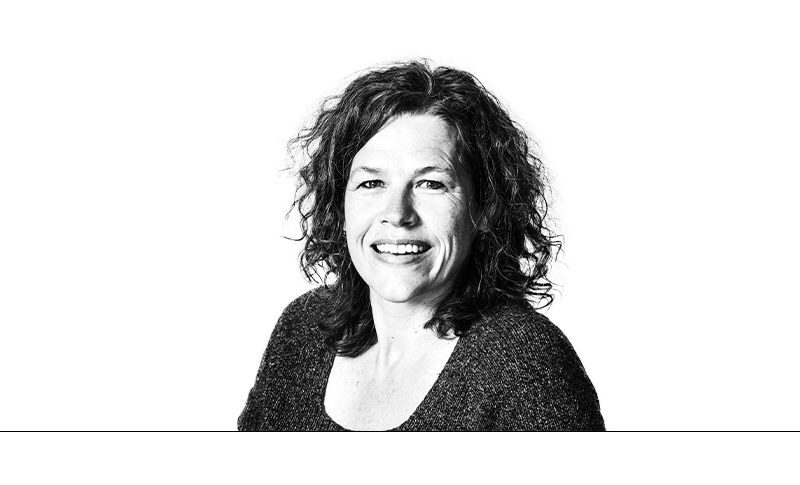Text Roelof Kleis and Albert Sikkema
Provided Covid keeps at bay, we can get back to the campus in a couple of weeks. But while staff numbers have increased, the number of workstations on campus has not. Staff members will have to figure out together how they go about the new hybrid working week and how they will use the scarce office space. A tour of the science groups.
After a year and a half of online classes, campus life has started up again for students. As for staff, the way things look at the moment, they can return to campus on Monday 20 September. They will be met by a shortage of space. Staff numbers at WUR have gone up a lot during the Covid period. To accommodate this and further future growth, 12,000 square metres of additional office space is needed between now and 2026. The Executive Board wants to deal with the space shortage both by building (2000 m2) and by saving space (10,000 m2).
Working at home and sharing workstations are therefore essential elements of the new Strategic Accommodation Plan 2021-2026. This plan still has to be approved by the WUR Council, though. Thanks to Covid, we’ve gained plenty of experience of working at home. Now, with the concept of hybrid working – partly at home, partly in the office – an entirely new experiment lies ahead.
Environmental Sciences Group
‘No longer on autopilot’
‘It will be an adventure,’ says Ellen van Hattem of the Expedition Housing working group. ‘We must see how we can set up hybrid working with solutions for the short term.’ The working group is developing a new housing plan to address both the transition to hybrid working and the growth of the Environmental Sciences Group (ESG). That growth is considerable: some chair groups have expanded by 30 per cent in the past couple of years. An important piece of input for the plan is the survey that the Works Council conducted just before the summer break. The responses show that working at home is popular: more than half the ESG staff say they can work from home very well. But if they work in the office they would rather not work at a hot desk. The working group has also gathered information about where the bottlenecks lie by interviewing team leaders and chair holders. All this should lead to a proposal this year, and the changes should be implemented by the middle of next year. ‘But don’t expect a complete makeover of the building,’ she says. ‘The transition to hybrid working is a process. Some of the staff want to work at home. There will be no more just getting into the car to go to the office on autopilot. People will think about what they want to do that day, who they want to meet, and whether they need to go to campus to do so. It’s going to be interesting to see how we go about it together, and how we organize it.’
Plant Sciences Group
‘A lot of people don’t like open plan offices’
The chair groups in the Plant Sciences Group don’t have an accommodation plan yet. Three ‘pilot groups’ have started working on a plan: WUR directors and admin staff, Agrosystem Sciences, and the Genetics, Bio-informatics and Biosystems chair group. These plans are still at the exploratory stage. The pilot groups are being supported by WorkWire, an external consultancy. The process kicked off with a survey before the summer break, and the next stage is workshops. Around the building, opinion is divided on sharing desks, says Hein Stallinga of the Works Council. ‘Researchers mainly do concentrated work. Many of them don’t think that goes well with the open-plan office in which you have to find a new desk every day.’
Social Sciences Group
‘Half want to work at home two to three days a week’
‘I don’t think everyone is fully going to come back to the campus,’ says operations director Lisa van Bemmel. ‘It will be a tight squeeze in some places. Wageningen Economic Research and the Leeuwenborch, in particular, have expanded a lot.’ A survey by the Works Council confirms Van Bemmel’s hunch: a clear majority of the employees want to work at home part of the time. In fact, half want to do so for two to three days a week, says spokesperson Emil Georgiev. People say they find working at home less stressful. Georgiev: ‘There’s an explanation for that. Working at home makes it easier to combine professional and domestic work. People work more efficiently at home, you don’t get the stress of commuting and people take less time off.’ Together with a working group called Hybrid Working at SSG, Van Bemmel is drawing up a list of the wishes and needs of the various departments in relation to hybrid working. ‘Adjustments will be needed here and there. In The Hague and in Atlas people are already working flexibly, without desks of their own. But the Leeuwenborch is still a traditional building. You need adjustable desks, for instance, so they can be shared. Some departments actually want fewer workstations and more spaces for meetings. You don’t need major renovations to achieve that. From the responses we’ve had so far, no big problems arise. The main thing is to make clear arrangements among yourselves. Hybrid working is new for a lot of people. It will really be a case of learning from experience.’
Agrotechnology & Food Sciences Group
‘Not keen to give up their own desks’
There is an acute shortage of space at the Agrotechnology & Food Sciences Group (AFSG), and it can’t be solved with flexible or hybrid working. So a new building is to go up behind Axis on what is now a carpark at the Bornsesteeg. Part of that building is for groups from AFSG. The need for office and lab space has now been documented. ‘In parallel with that, we’re thinking about how we are going to introduce flexible and hybrid working,’ says Ellard Hooiveld of the AFSG Works Council. ‘A lot of staff would quite like to work at home part of the time, we learned from a survey we did last year. But hot-desking is a different story: 90 per cent were against that. A more recent poll by management pointed in the same direction. People are positive about working at home, but negative about giving up their own desks.’ Two working groups (for lab and office space) are going to work on how to introduce the flexible working week, says Hooiveld. ‘That should give us a kind of toolbox from which chair groups and business units can take what they need and can use. But when it comes to hybrid working, nothing has been done yet.’
Animal Sciences Group
‘A lot of location-based work’
The chair groups in the Animal Sciences Group (ASG) are in relatively cramped accommodation in Zodiac. During the Covid period, a lot of new staff joined the various chair groups and Livestock Research. When the staff come back to campus, a lot of groups will have a serious problem. The question is, in fact: how can all the groups cut their use of space by 15 per cent to cope with the growth? Discussions were held on this before the summer break, says Leon de Jonge, chair of ASG’s Works Council. Several difficulties came to light. ‘Some people can’t work well at home because of their home situations. For other people, like lab staff, who do a lot of location-based work, working at home is not an option. Thirdly, a lot of staff are attached to their own desks and don’t want to give them up.’

 Illustration Shutterstock/Alfred Heikamp
Illustration Shutterstock/Alfred Heikamp 

